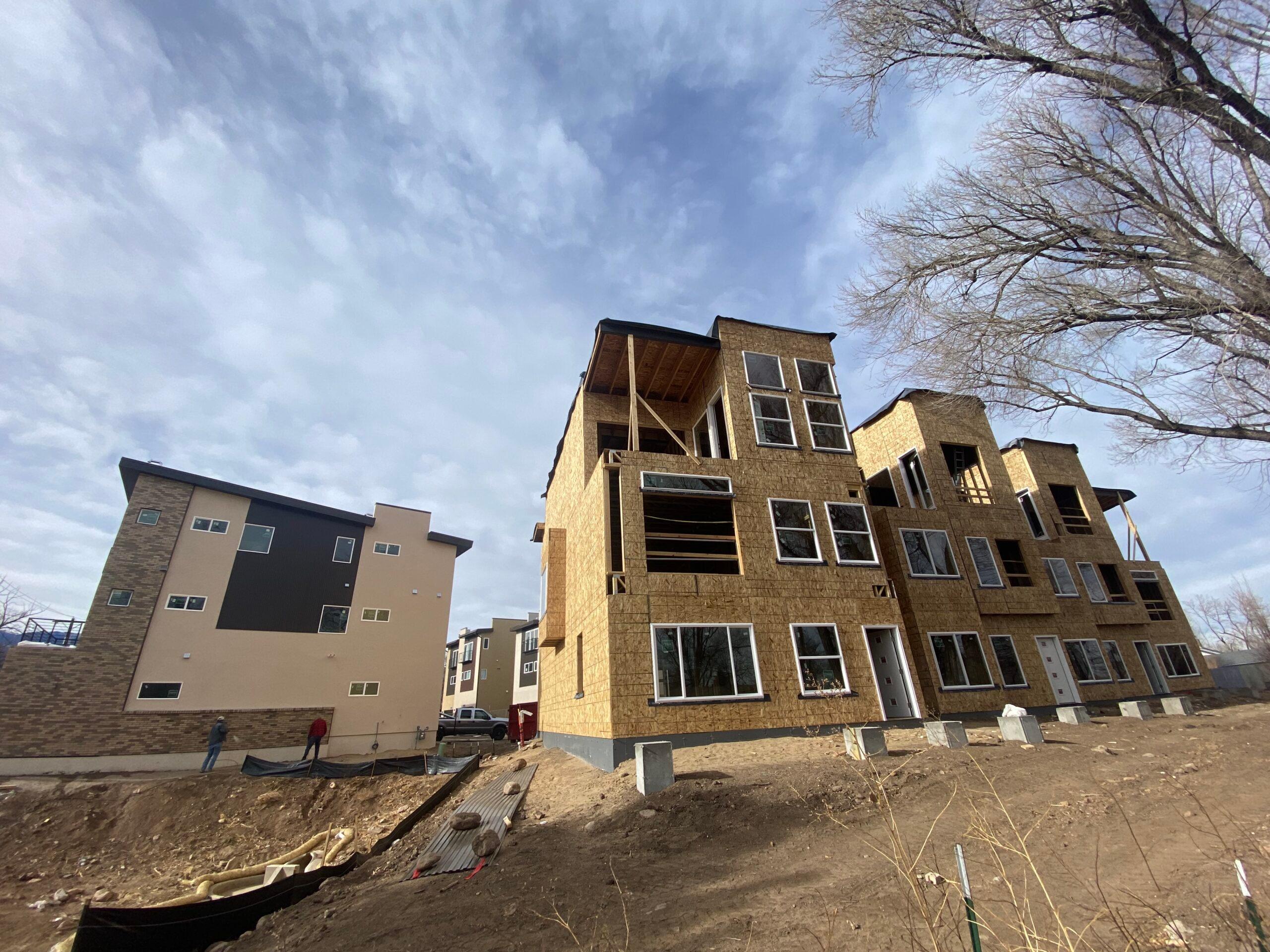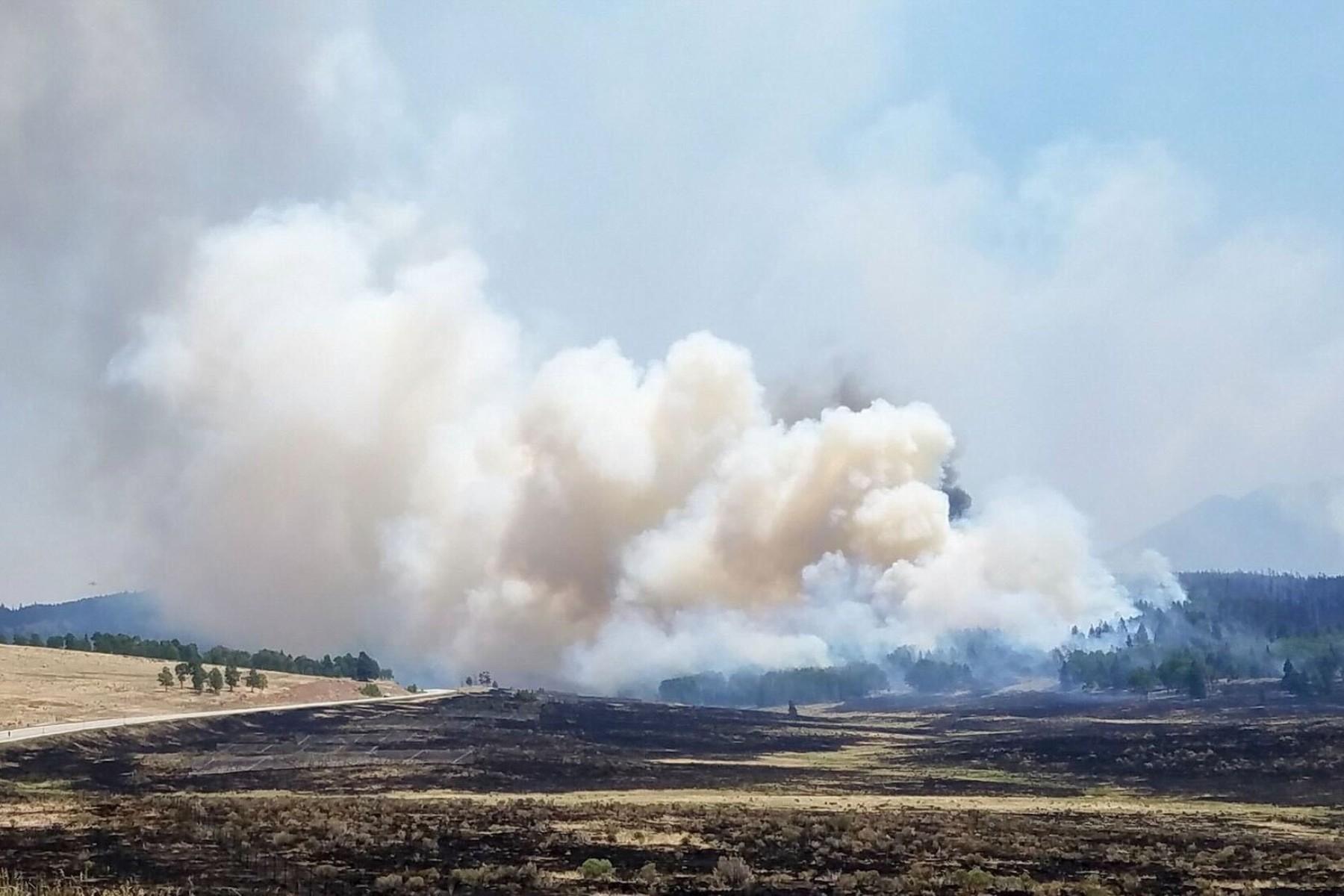
Before it was subjected to hours of criticism from local elected officials, before it was trimmed then gutted by legislators trying to appease those same local officials, Senate Bill 23-213 was a ray of hope for many climate advocates in the state.
Gov. Jared Polis’ then-sweeping overhaul of land use policies was seen as transformative to many looking to reign in skyrocketing housing prices — as well as to environmental advocates hopeful it would help Colorado make a state-sized dent in climate emissions.
“It was a major deal,” said Matt Frommer, senior transportation associate for the Southwest Energy Efficiency Project. “And I think eventually it’s what we need to do as a state to fix the housing crisis and reign in sprawl.”
In its original form, the bill would have forced local governments to allow for more residential density in many cities across the state and cut local parking requirements. That would be a big change for many Colorado cities that mostly only allow sprawling single family neighborhoods.
While the bill didn’t win the support of every environmental advocacy group, it excited Frommer and his peers. They point to research that says denser living leads to fewer emissions. Smaller homes require less energy to cool or heat, and denser neighborhoods typically require less driving and can make it easier to walk, bike and use public transportation.
“We really can't meet our climate goals without land use reform,” said Kelly Nordini, CEO of Conservation Colorado.
But that reform bill is now a shadow of its former self, after Senate Democrats stripped out the “upzoning” provisions that inflamed local elected officials who’ve long held the power to make land use decisions and also worried the bill could lead to displacement, water problems, and changes to neighborhood character.
“Across the board, gutting the land use bill is a huge disappointment,” said Alana Miller, the Colorado director of climate policy for the Natural Resources Defense Council.
Some 20 conservation-focused organizations on Friday sent a letter to legislators, calling on them to restore the bill’s upzoning provisions in the waning days of the legislative session. That could happen as the bill moves into the House next week. But Gov. Jared Polis late this week seemed to suggest it may have to wait.
“We’re going to make progress every year, is what I can say,” Polis told Colorado Matters.
A spokesman for the governor added: “The broad coalition for change is supported by the conservation community because data shows that policies will reduce pollution, protect our air, and natural and agricultural lands, and conserve water. The Governor is hopeful that any final policy that reaches his desk will make major progress towards achieving these goals.”
CPR News spoke with five conservation groups. Representatives for each of them agreed that more density is better for the climate, but a handful objected to the bill itself.
Colorado Communities for Climate Action, a coalition of 42 climate-conscious local governments in the state, did not support the bill.
Its members weren’t convinced increased density would help with affordability issues in desirable mountain resort towns and worried about its impact on water supply. They also thought the bill could actually result in more transportation emissions because it initially allowed for more density — up to sixplexes — across all residential areas in many jurisdictions, even if those areas were on the fringe of a given city and away from public transit.
Coalition staff tried to convey those concerns in stakeholder group meetings last year that eventually contributed to the bill’s drafting, said Jacob Smith, executive director of Colorado Communities for Climate Action.
“But honestly, we made lots of recommendations and suggestions and none of them found their way into the introduced bill,” Smith said.
The threat of state preemption of local land use authority split the coalition’s members, Smith said. A more targeted approach, rather than the “super aggressive, sweeping” initial bill, may have been more warmly received, he said.
“The governor thought he had the politics to get something really sweeping done and just kind of went for the whole thing,” Smith said. “The politics clearly weren't there and there was clearly not enough investment in building the coalition.”
The bill also did not have the support of the Rocky Mountain NAACP, which also advocates for climate action. The group’s president, Portia Prescott, said the bill didn't recognize the fraught history African Americans have with density in this country — specifically being shut out of home ownership programs and being shunted into public housing.
“When you say condensed living, that makes African Americans and a lot of us in our community trigger to Cabrini-Green in Chicago,” she said, invoking racially segregated public housing towers that the city neglected.
Those towers were up to 16 stories tall, far taller than any mandatory upzoning would’ve allowed under the Colorado bill. The governor often emphasized the bill’s allowance of “middle” for-sale housing like duplexes and townhouses, which he said could be used by young families to start building equity.
But Prescott was skeptical that any new for-sale homes would be affordable in formerly Black-majority neighborhoods like Denver’s Five Points, or that Black people would be welcome or safe in communities where new density would be allowed.
“You live in a fourplex in Castle Rock or in Douglas County, you're still going to be discriminated against and you're still going to deal with the issues of policing and the over-policing of one or two Black bodies in that district,” she said.
New density requirements should also have come with new state funding for public transportation, Prescott said.
Other climate groups hope the whittled-down bill is the start of something bigger.
The initial bill went big. And even though that version appears to have failed, Matt Frommer with SWEEP said it succeeded in shifting the conversation.
“Had the governor's office just proposed something like allowing [accessory dwelling units], we would've been fighting about ADUs,” he said, referring to backyard cottages or “granny flats.” “Instead, it was a much more high-level and holistic conversation about zoning and its role in the housing crisis at all levels.”
He pointed to California, where state Sen. Scott Wiener of San Francisco’s initial big-swing attempts to boost housing production at the expense of local government power failed. Some of those policies were later passed in smaller bills, and Wiener continues to push for more.
“You really can't put the genie back in the bottle on some of this stuff,” Frommer said.
Nordini, with Conservation Colorado, said polling suggests there’s broad public support of the original bill’s methods and goals. That support, along with the ever-pressing nature of both housing affordability and climate change, suggests to her that lawmakers need to keep pushing for a statewide approach.
“Right now we're asking every local government on their own to do it on their own,” she said. “And that's not how you solve big problems.”









